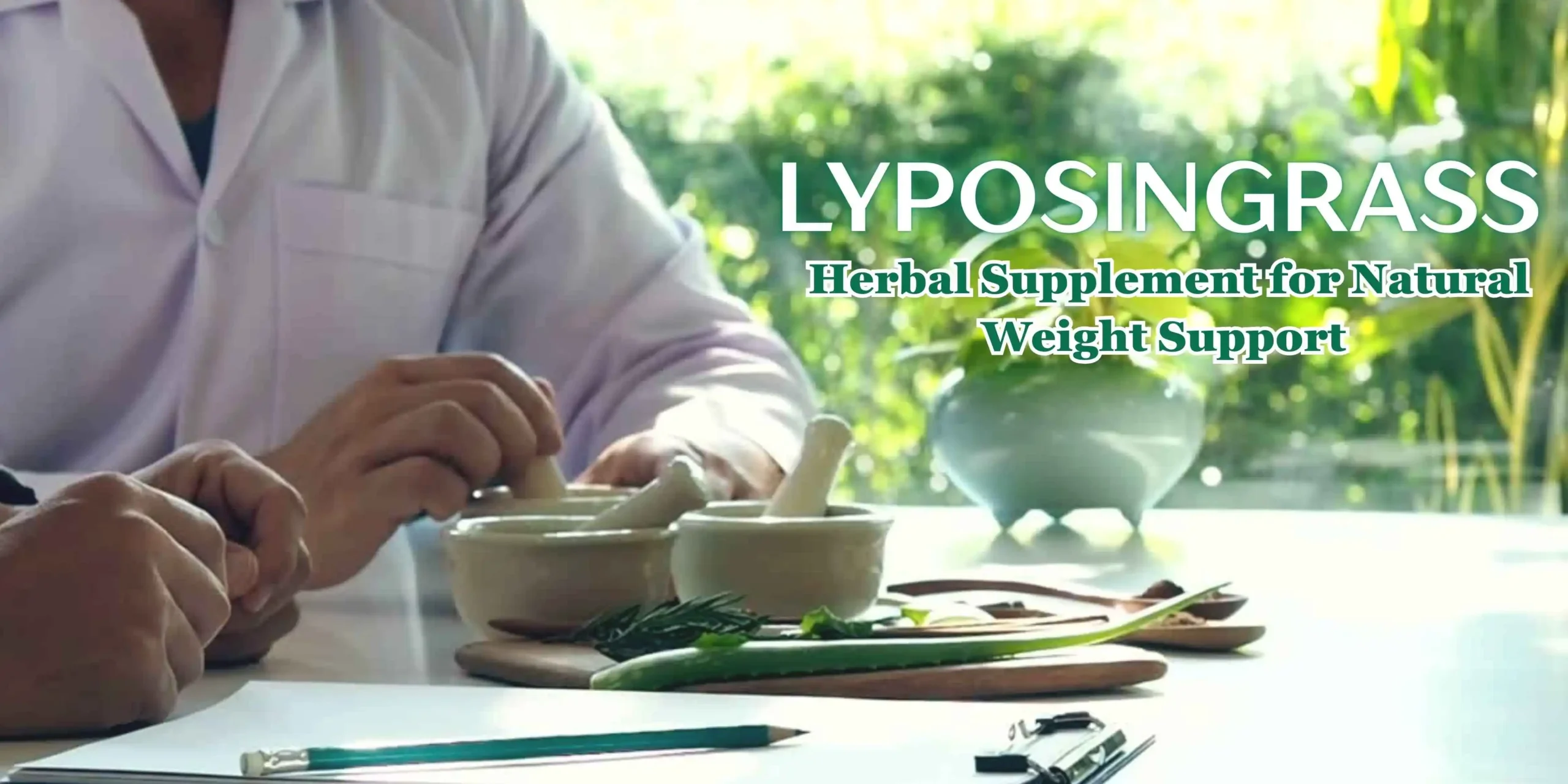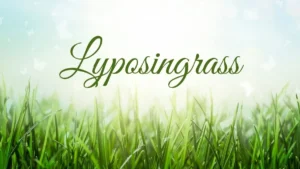Lyposingrass is a herbal supplement promoted for weight support, fat metabolism, and digestion. Its ingredients show potential benefits, but evidence is limited. Use responsibly with healthy lifestyle habits and medical guidance.
Introduction
In the ever-expanding world of herbal supplements, one name that has gained attention in wellness communities is Lyposingrass. Marketed as a natural aid for weight management, fat metabolism, and digestive support, Lyposingrass combines traditional herbal concepts with modern health trends. The name itself reflects its focus: “lypo” relates to fat, while “singrass” is derived from grass or plant origins, symbolizing its herbal foundation.
What is Lyposingrass?
Lyposingrass is presented as a herbal extract formulated from grass-like plants and complementary botanicals. While exact formulations may vary between manufacturers, many blends are inspired by:
- Lemongrass: Traditionally used in Asian medicine for digestion and detoxification.
- Green tea extracts: Studied for their catechins, which support fat oxidation.
- Barley or wheatgrass powders: Often linked with micronutrient support and gut health.
The supplement is primarily marketed for:
- Fat metabolism: Encouraging the breakdown of stored fats.
- Weight management: Helping individuals sustain healthy habits.
Claimed Benefits of Lyposingrass
1. Natural Weight Management
Supporters believe Lyposingrass helps individuals regulate weight when paired with balanced nutrition and physical activity. Rather than being positioned as a “quick fix,” it is marketed as a supplementary tool for long-term goals.
2. Fat Metabolism and Energy Support
The “lypo” reference underscores its focus on fat metabolism. Some blends include compounds like chlorophyll and polyphenols, which may encourage fat oxidation and energy production. This could explain why users report higher energy levels during daily activities.
3. Digestive Health Benefits
Herbs like lemongrass and wheatgrass have traditionally been linked to soothing the digestive tract. Users often associate Lyposingrass with less bloating, lighter digestion, and a more balanced gut environment.

The Science Behind Lyposingrass
At present, there are no large-scale clinical trials specifically on Lyposingrass. However, several of the herbs it draws from do have research-backed roles in metabolism and digestion:
- Green tea catechins have been shown in studies to increase energy expenditure and fat oxidation.
- Lemongrass oil and extracts: Historically used for stomach comfort and mild antimicrobial effects.
- Wheatgrass: Rich in chlorophyll and antioxidants, which may support detoxification.
The challenge is that supplements like herbal extract are often blended formulas, and their combined effects haven’t been thoroughly studied.
Safety and Precautions
While Lyposingrass is generally marketed as safe, it is not free from considerations:
- Possible Side Effects: Mild digestive upset, nausea, or allergic responses, particularly for those sensitive to grasses or herbal compounds.
- Who Should Avoid It: Pregnant or breastfeeding women, people with liver/kidney conditions, and those on medications such as blood thinners or antidepressants.
- Dosage Importance: Excessive use can stress the digestive system or interact with medications. Following manufacturer guidelines and professional advice is essential.
How to Use Lyposingrass Responsibly
For individuals curious about trying Lyposingrass, here are responsible use practices:
- Consult a healthcare professional before beginning, especially if you’re on prescription medication.
- Start small to monitor tolerance, then adjust as needed.
- Pair with lifestyle habits, such as a nutrient-dense diet, regular exercise, and hydration.
- Track results: note changes in digestion, energy, or weight to see if it aligns with your goals.
Why Herbal Weight Management Supplements Appeal
Lyposingrass reflects a broader consumer shift toward natural health solutions. Many people are drawn to the idea of using plant intelligence rather than pharmaceutical stimulants. It aligns with:
- Cultural traditions (herbal teas, detox practices, and plant-based remedies).
- Eco-consciousness (sustainability and fewer synthetic chemicals).
- Holistic health (mind-body balance rather than isolated symptom treatment).
Yet, experts stress that no supplement is a substitute for consistent lifestyle practices. Herbal extract may support wellness, but lasting results come from a combination of healthy eating, activity, stress management, and sleep.
Expert and Consumer Perspectives
Healthcare practitioners caution that while Lyposingrass may offer supportive benefits, the lack of clinical validation means it should be used with realistic expectations.
Consumers often highlight lighter digestion, reduced bloating, and steadier energy levels as perceived benefits. However, these are personal experiences, not guaranteed results.
For transparency, brands marketing herbal extract should:
- Clearly list herbal ingredients and concentrations.
- Provide safety disclaimers and dosage guidelines.
FAQs
Q1: Is Lyposingrass proven to cause weight loss?
No. Some ingredients have research-backed roles in metabolism, but the full blend lacks large-scale clinical proof.
Q2: Can I take Lyposingrass every day?
Possibly, if tolerated well. However, long-term daily use should be guided by a professional.
Q3: Can Lyposingrass replace diet and exercise?
No. It can complement healthy habits but cannot substitute for them.
Conclusion
Lyposingrass represents an intersection of traditional herbal wisdom and modern wellness trends. Marketed for fat metabolism, digestive support, and natural weight management, it resonates with individuals who prefer plant-based approaches.
While early evidence from its individual ingredients is promising, the absence of dedicated studies means it should be approached cautiously. Used responsibly, with medical guidance, and in conjunction with balanced lifestyle habits and realistic expectations, herbal extracts may provide supportive benefits for those seeking a more natural path to wellness.

 BIOGRAPHY7 months ago
BIOGRAPHY7 months ago
 HOME1 year ago
HOME1 year ago
 HOME1 year ago
HOME1 year ago
 BIOGRAPHY1 year ago
BIOGRAPHY1 year ago





























